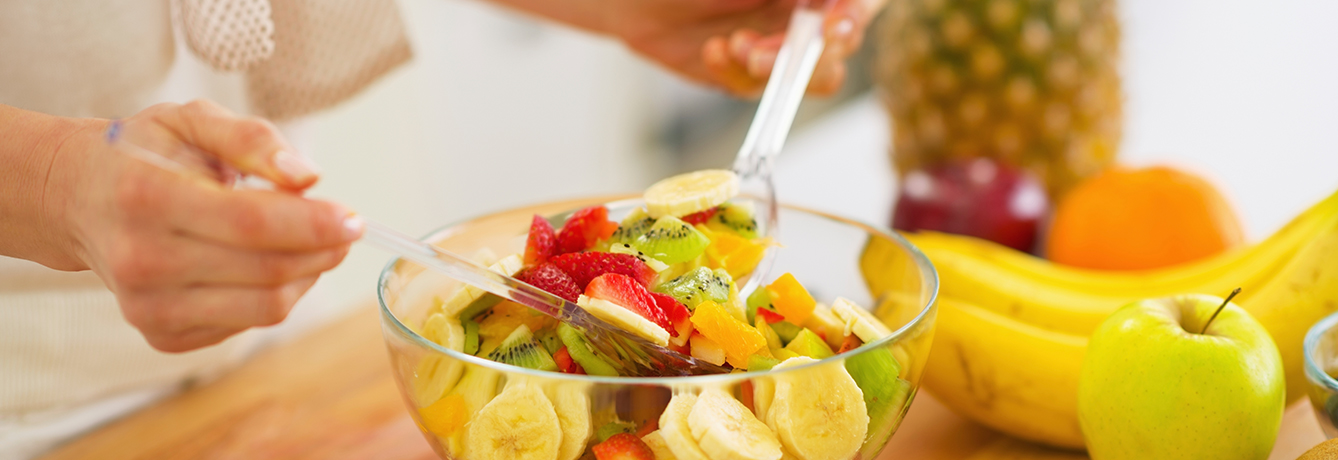Healthy Kitchens, Healthy Lives

It was just 20 to 30 years ago, but it seems like a lifetime. Growing up, family meals seemed to be rather easy. My mother, like yours I’m sure, used to cook the family dinner, something different each night of the week. My father used to grow his own fruit and vegetables in our small garden back in the North East of England. I still have very fond memories of helping my father pick fresh tomatoes from the vines he grew in the green house. Shelling peas from their pods, digging up odd-shaped carrots, pulling rhubarb from the ground and the smell—oh my, the smell!—of fresh mint, which seemed to take over wherever you planted it. Helping prepare the vegetables with my brother and sister for that night’s dinner—it was a real family affair back then. One of my first dabbles as a young chef was “Lettuce Sandwich”—crisp, light and full of flavor, it is still a favorite of mine.
But our mothers' influence over our eating habits have proven no match for the billions in food marketing dollars designed to get us to eat everything but freshly produced food. Years ago we definitely didn’t have the abundance of processed food that overflow our supermarkets' shelves like we do now. High fructose corn syrup is in everything from salad dressings to ketchup, pasta sauces to desserts, not to mention the other hard-to-pronounce ingredients hidden in our food. If trained chefs like me are not using these ingredient in our recipes, do you really want them lurking in your food?
So it was enlightening to attend the “Healthy Kitchens, Healthy Lives” conference held in St. Helena, California in late February of this year. The conference was a partnership between the Harvard T.H. Chan School of Public Health (Department of Nutrition) and The Culinary Institute of America.
The attendance list was very impressive with over 500 professionals from the world of medicine and food. Physicians, dietitians and chefs joined together to explore a singular topic: food and its relationship to health and optimal self-care. At a time with increasing rates of obesity, diabetes and other lifestyle-related health conditions, the timing was perfect. Along with Jenn LaVardera, MS RD (Nutrition and Health Communications Manager) here at the Dole Food Company, we plunged into a veritable feast of scientific, clinical and culinary delights. We discussed best practices in healthy eating; how to shop for and prepare delicious, satisfying and nutritious meals; and how our lifestyle choices and behaviors can either enhance or diminish health and quality of life. The importance of sharing actionable information to patients, the customers we serve, and most importantly, our very own families and loved ones cannot be overlooked.
The overall outcome of the conference was simple: Eat more plant-based food, such as vegetables, fruits, nuts, seeds and whole grains, and fewer processed foods. Be mindful of the food on our plates and cook more at home. Preparing food in your very own kitchen, returning to the old ways, and making cooking a family affair passes on a life skill to the next generation that can greatly improve their health and quality of life as they grow.
After 35 years as a chef working with the best produce possible, I know the benefits of following a plant-based diet. Follow the Dole recipes on this web site and you will greatly improve the amount of fruits and vegetables you eat on a daily bases. All of the recipes are easy to prepare, delicious and—guess what?—healthy, so get in the kitchen tonight and try something new that’s good for you and your family. Have fun!
Published April 1, 2016
Get Some Fresh Inspiration


